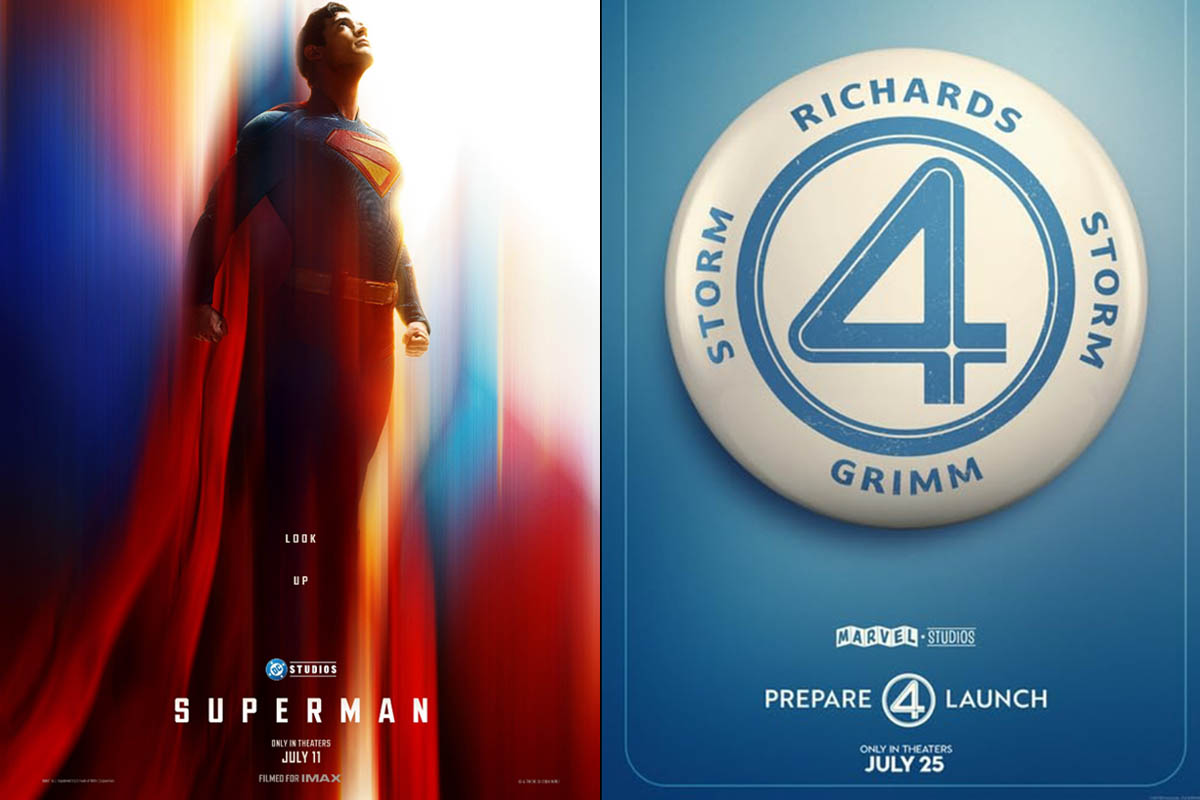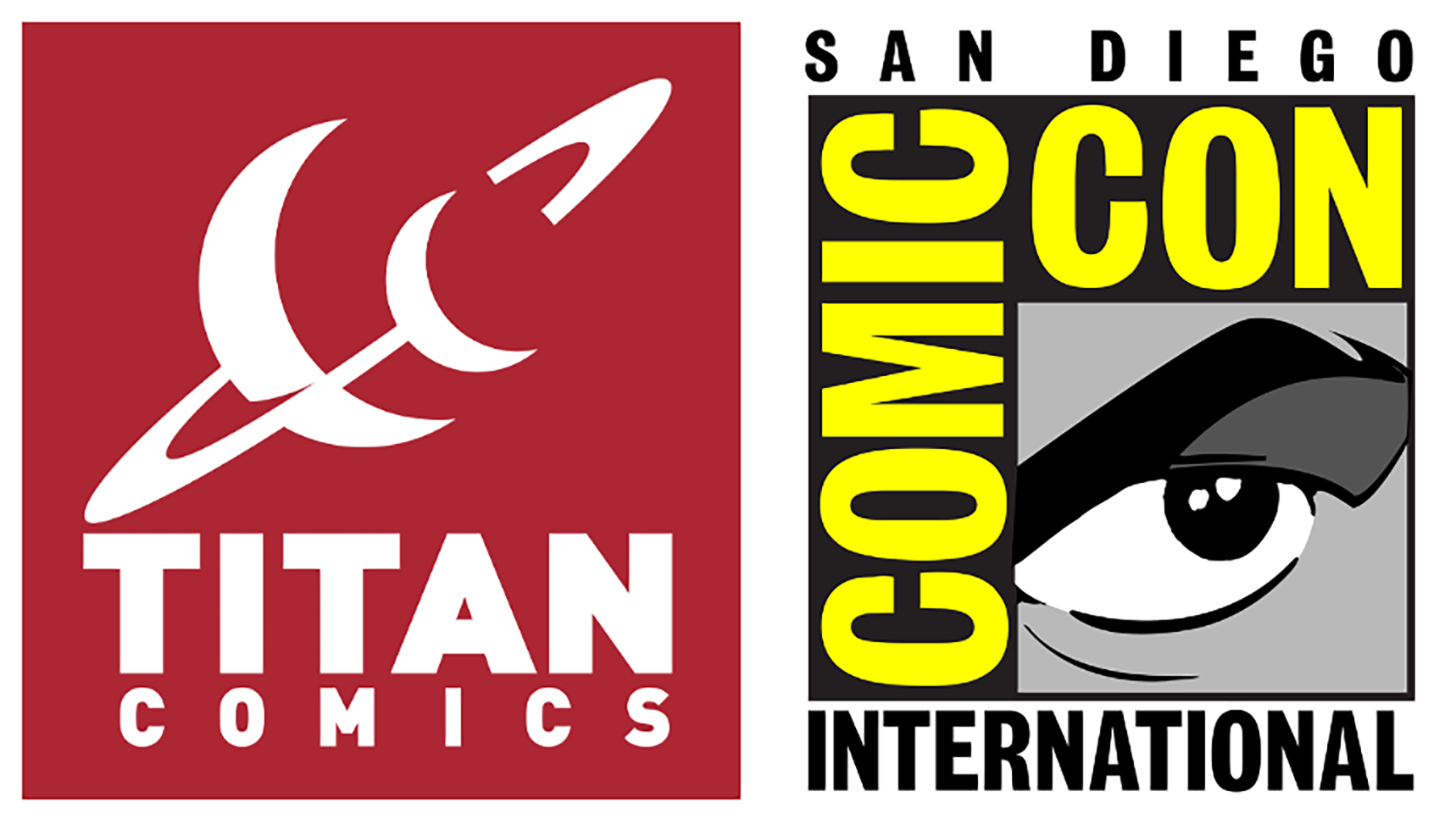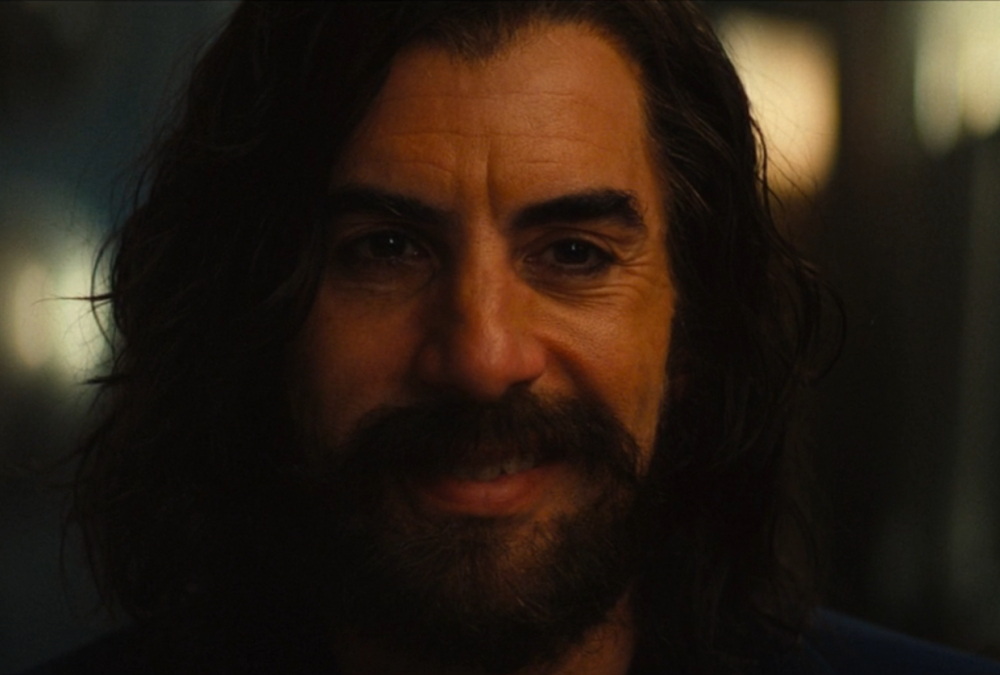Technology has taken over all of our lives. Most of society is at a point where our addiction to our cell phones has dictated our moods and personalities. Today’s youth is the most at risk becoming addicted to technology that it will ruin their future. Jon Hyatt has noticed this trend and decided to make a documentary about the struggles today’s society has with this addiction. He also expose the corporate greed that Silicon Valley has created in marketing apps and websites to dictate our likes and dislikes. I had the pleasure to sit down and discuss these issues with writer, director, producer Jhn Hyatt.

Nancy Tapia: Let’s talk about Screened Out. You had your hands full, directing, writing, producing, and you featured in it. Why did you choose this documentary? Why the importance to bring this out right now?
Jon Hyatt: I was really worried,I started to see it in my own children who really struggle with the screen. So whenever they had to get off it, they would generally throw fits and get angry and it was a problem. It really seemed like a form of withdrawal. They always wanted to get back on it. It was just all like, there’s nothing else in the house. Then I looked at myself and I said, well, wait a second, you know, I’m doing the exact same thing. I’m checking social media and then I’m getting right back on it again. You know, I just constantly needed to go back to it and go back to it. It was actually one of my brothers, pointing me in the direction of a book that I read about children’s screen addiction.
That really, really got me interested and realized, you know, this is massive. Like why aren’t more people talking about this? It was around that time when the whistleblowers started to come out of Silicon Valley as well. Then it just became a super hot topic and I was about to make another horror film because I recently made a couple of short horror movies and we were in the beginning of actually making a horror sci-fi flick. And I said, well this is a no brainer why don’t we just make a documentary? So we went forward.
Nancy Tapia: You know, it’s funny, in the documentary you did cover about how tech people usually don’t allow their kids under 14 with gadgets. And that’s actually what brought your attention. So how did you change that with your kids?
Jon Hyatt: Yeah, so our kids are very limited on how they can use the screens and what they can do. Now before Covid, we didn’t really do any screen time during the week at all. Possibly like a show on like Wednesday, and then on the weekends, we know we didn’t want to be terrible parents. So, you know all the other kids get to use this stuff and we allow our kids on the weekends so they can have a little bit of kind of junk food screen time. But we’re in Covid right now. We’ve had them let them have a little more, but not very much, and they still gotta earn that time. For myself, I’m not on any social media or anything like that, so I try to use my phone as what I think phones should be, as tools.
I mean, they’re unbelievable tools. I’m not an enemy of technology. I love technology. I’ve always loved technology. I’m a cameraman for God’s sakes and all these other things, and I’m always looking at what the new tech is and what it’s doing. I think what you are going to see after my film is things that are coming to the pipe that are going to deal with digital junk food, that social media right now, and certain games that are just being created just to really hijack your attention. They’re unbelievably negative. If we want to kind of live in kind of like a Star Trek future,we can’t be hijacked by these handful of corporations that want to control our attention spans and make us live in these strange little filter bubbles they create, it just doesn’t make any sense. Most of the whistleblowers that are coming up, big people in Silicon Valley that are now speaking out against Facebook and all of these things, are really now saying we need to push these large companies into those areas right now where they’re not creating products like this or we need to take over these companies and make sure they’re doing it responsibly and not irresponsibly as they’re doing right now. Sorry, that’s kind of a long answer.
Nancy Tapia: No worries. I mean, right now you mentioned the whistleblower. In the documentary, you have a former president of Facebook, covering a little bit of the strategy they had in trying to gain as much conscious attention as possible. The way that they’ve mentioned even a dopamine hit, now there are people like you saying how many people are really aware of all this.
Jon Hyatt: You know what’s really funny too is like, you know, when people are smokers, what do they want? They don’t want to hear, Oh this is bad for you, stop smoking. They don’t want to hear about it. Right. You take them to the bottom or something happens and they finally listen. If you’re on social media and if you’re checking it all day, you’re probably addicted to it. You probably have a behavioral loop that you’re going through, and you’re not actually in control. If you try not doing it for two days, it will be hard. Don’t use Facebook for two days. If you use it or Instagram, put it down, see what happens. You’ll freak out, and that’s because you’re suffering withdrawal from it
Silicon Valley realizes what they’ve done, they’ve hijacked humanity. It’s not like there’s a lot of companies that have done this. Even if we want to fix this problem, and many of the guys in Patricia and Harrison, all these guys are talking about this is, it’s not like we got to go all around the world and stock all these things, all these people making these apps right now. We really just need to go after the big four or 10, whatever they are, the handful of like a thousand people that are controlling these addictive habits of billions of people. It can be changed. It can be changed quickly, we can get a handle on it, but right now it’s doing negative things to people and unbelievably negative things to the tweens and teens and children. It’s gotta be dealt with.
Nancy Tapia: Speaking of teens, before social media they already had a hard time growing up. There was already the normal acceptance by others and now it’s adding up social media validation. You had the two ladies in the documentary that mentioned that.
Jon Hyatt: Yes. It’s all about validation. It’s validation like that for all of us, like Ryan, we go on there and we post a picture and then we keep coming back and checking how many likes that we have. Then we feel good. It’s that social validation loop and it’s a reward. There’s stuff that we didn’t put in the documentary because it just would have been too long. We wanted to keep it kind of short. But you know, there’s a scientist named James Olds and she would study the reward centers of the brain. What was interesting was they would have an electrified bridge and they would have a rat and the rat, even though it was starving, would not cross that electrified bridge to get food.
But when they stuck this thing into his brain, the rat would cross that bridge and push a button to stimulate the reward center, it would but it wouldn’t do so when it’s starving. We do it for awards and the weird thing about the reward center of our brain is we can actually stimulate it over and over again and we never say what we need to be full. Whereas like food, we get full or we do another experience. We play basketball or we go do this or we spend time with our friends. All of these rewarding things that we do cause good things, but it doesn’t go on forever. They don’t come in this unlimited supply, but what these manufacturers have done is figured out a way to constantly reward you and, and have you coming back for more. So it’s a very easy thing to make you feel good or you think you’re feeling good but you’re also overstimulating yourself cause you’re doing it all the time. Which you know, leads to things like depression and anxiety and all these, all these things, you know. And the worst thing is that in the real world it’s about getting you the same amount of rewards that these things have given you. So you know you tend to move into these apps more. It’s, it’s a very dangerous cycle.
Nancy Tapia: One thing I did not know prior to this documentary is that there is a actual diagnosed screen addiction and there is an internet gaming treatment centers too that exist out there.
Jon Hyatt: Yeah. So the WHO has now classified gaming as a cable addiction. I don’t think that this other stuff is far behind, because that just happened not that long ago. So I really don’t think this is far behind. All they need to do is look around, I mean, it’s obviously an addiction to me. Everyone’s addicted, go to a restaurant, go wherever you go, and you see this everywhere. I mean, I love when Jim said, perfect CEO, common sense media, it’s addictive compulsive behavior. I’m going to call it that. South Korea they’re way ahead of the curve. They have over 400 rehab centers dealing and when we were able to visit Hillary, who’s in the documentary, she was kind of a pioneer of this and she sees it all the time. Now you have four of these places opening up in the States and you’re going to see it growing like anything else because they’re going to call it an addiction. It might not be the same addiction as crack cocaine because that’s gonna affect you physically in a different kind of way. But it’s a compulsive disorder. It’s a behavioral addiction. Absolutely.
Also Check Out: Homecoming Season 2 Kyle Patrick Alvarez Discusses The Thrill Of Directing Season 2
Nancy Tapia: But it makes you wonder which one would be more damaging. I mean, mentally or physically.
Jon Hyatt: Yeah. Well, the worst thing about it is we’re just going in and we’re using these algorithms that are created by a company just to keep you addicted. I don’t know if you’ve ever heard the term filter bubble, but it’s a very popular thing even the way the markets find you on Facebook. What do they do? You go on there and they show you everything that you like. They know what you click on, they know what you like, so then they just market that to you. So you know, the major social issues or if there’s an election coming up, you’re only gonna see things that support your viewpoint. It’s very important that we can make balanced decisions.
And I think that’s probably why you’re even seeing more partisan issues coming up in the world right now. Everyone is getting this confirmation bias. This is everything that is being tipped back to them. If they see something that they disagree with, they freak out. You can’t take it because they never see that on their feed. And that’s where they’re getting all their news. Everything is catered to them and this is a very dangerous thing too. Very, very dangerous actually. They’ve been talking about filter bubbles for 10 years. People saying, how dangerous is this going to be and how bad is going to end up? What it’s doing is thinking, you know, kids are on social media, especially teens. We’re also seeing this. So they’re, they’re thinking, okay, this is the only viewpoint I should have on this subject and they’re not seeing everything.
Nancy Tapia: So overall what do you hope people are going to take away from your film?
Jon Hyatt: I really hope that we step back and say, well we’ve been hacked. These things came up with promises of connections and these apps came out with these promises of being connected, connecting with your friends. But really they were just a way to loop us in so they could sell us stuff. At the end of the day, they’re here to hijack our attention so they could make companies that are unbelievably profitable. Some argue during this time I can see this person, I can talk to this person, but there’s better ways of doing it, and I really hope that Silicon Valley and the conscience Silicon Valley wakes up and takes this planet back from these people who are doing this, or I hope the CEOs of these companies realize this too.
And take a step back and say, okay, we were wrong. You know, we approached this the wrong way. And you see a lot of them are coming out and saying it. People who put tons of money, tons of money at these things, which also bothers me as well. Now all of these guys grew a conscience. Great, but where the heck were they 10 years ago, you know, 12 years ago when they were right. I really, I really hope that people take away the fact that your children need your attention. Put down your phone and learn how to deal with your own issues because your children are watching you. If you have children, your children are watching and they’re learning from you, and if you’re on your cell phone all day long, that’s a big problem. If they’re learning that that’s how they’re supposed to behave in the world and that’s very dangerous. We need to not make technology something that’s an enemy, but something that’s, it’s a powerful tool, which it is. It’s a great form of entertainment when we want to use it but again, it’s a tool that we should be able to manipulate that doesn’t manipulate us.
Nancy Tapia: That’s a good way to end that. Just out of curiosity, you featured your wife and she also tried to disconnect from social media during the documentary. Was she successful at the end?
Jon Hyatt: Well, she’s not. She understands what it is and she does put her phone down a lot. My wife is actually very busy and very active. So she’s constantly doing things, doing art projects, she’s not someone that is just dictated like she doesn’t sit around on the couch looking at her phone all day kind of thing. That’s on her side, but you just feel that you have to like to have time away from the phone and put it in another room, especially when she goes to bed at night and things like that because she knows that if it’s there, she’s just going to use it. Basically it’s Instagram and Facebook with her, same thing but it’s got its hooks into her and like most people. She’s got it under a little more control. But it’s to be honest, like people say, well, I’m going to get my Facebook under control. It’s a very hard thing to get under control. It’s very hard and like anything, it’s like, I’m just going to have three cigarettes a day and not 20, like maybe, going to go binge just one day.
LRM: All right, well, thank you so much for your time, John.
Continue the LRM Online conversation on Discord by CLICKING HERE!
—–
Have you checked out LRM Online’s official podcast feed yet The LRM Online Podcast Network? This includes our flagship podcast Los Fanboys, our premiere podcast Breaking Geek Radio: The Podcast, GeekScholars Movie News, and our morning show LRMornings. Check it out by listening below. It’s also available on all your favorite podcast apps!
Subscribe on: Apple Podcasts | Spotify | SoundCloud | Stitcher | Google Play

 FOR FANBOYS, BY FANBOYS
Have you checked out LRM Online’s official podcasts and videos on The Genreverse Podcast Network? Available on YouTube and all your favorite podcast apps, This multimedia empire includes The Daily CoG, Breaking Geek Radio: The Podcast, GeekScholars Movie News, Anime-Versal Review Podcast, and our Star Wars dedicated podcast The Cantina. Check it out by listening on all your favorite podcast apps, or watching on YouTube!
Subscribe on: Apple Podcasts | Spotify | SoundCloud | Stitcher | Google Play
FOR FANBOYS, BY FANBOYS
Have you checked out LRM Online’s official podcasts and videos on The Genreverse Podcast Network? Available on YouTube and all your favorite podcast apps, This multimedia empire includes The Daily CoG, Breaking Geek Radio: The Podcast, GeekScholars Movie News, Anime-Versal Review Podcast, and our Star Wars dedicated podcast The Cantina. Check it out by listening on all your favorite podcast apps, or watching on YouTube!
Subscribe on: Apple Podcasts | Spotify | SoundCloud | Stitcher | Google Play



